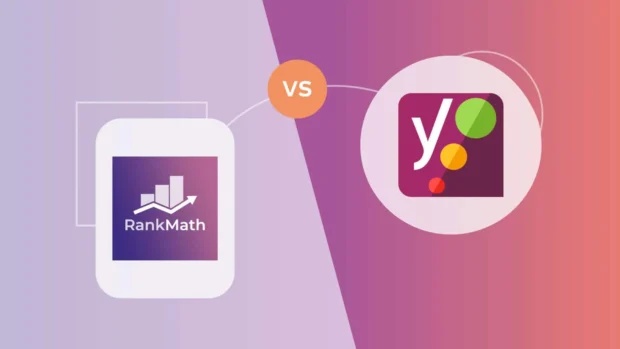As the world of digital marketing grows increasingly complex, so does the world of WordPress plugins. Though there are hundreds of plugins available to meet your needs, it’s hard to know which ones to use, and just as hard to know what to do once you find the right one.
It’s easy to list the plugins that everyone should be using on their sites. There are the WordPress plugins that have been around since the beginning such as Yoast SEO, but even more popular are the ones we hear about for the first time. These are the plugins that websites claim are essential for their success…but which one are you listening to?
Disclosure: This content is reader-supported, which means we may receive a commission if you click on some of our links.
The best WordPress plugins make your website faster, increase traffic and improve security for your visitors.
But don’t overdo it: installing too many WordPress plugins can slow down your site and cause other problems.
I have a lot of plugins installed on my blog, which is visited by millions of people every year. You can fill out forms, sign up for membership materials, and more – it’s all transparent. The key is to choose the right plugins that work together for your needs.
I’ve compiled a list of the seven best WordPress plugins you can install right now to improve your website. After the exam, I will show you how to evaluate your options.
#1 – WP Rocket Review – the best for speed optimization
A WordPress site can put a heavy load on your server, increasing the likelihood that your web server will go down. To avoid these unpleasant situations and make sure your website loads super fast, you need a caching plugin like WP Rocket.
WP Rocket is a simple and effective plugin that increases the speed and performance of your website. It doesn’t wait for someone to request a page to cache it. Instead, it will automatically cache your website, which will result in an immediate performance improvement.
The plugin automatically turns on WordPress recommended caching settings such as page caching, gzip compression and cache preloading.
You can also enable other features like CDN support, lazy image loading, DNS prefetching and minification to improve page load time and reduce bounce rate.
WP Rocket costs from $49 for a yearly license per website, which is certainly not cheap. Especially when there are other good caching plugins out there. But trust me, it’s worth every penny. Read more.
#2 – Yoast SEO Review – the best for increasing organic traffic to your website

Users who are serious about search engine optimization rely on Yoast SEO to achieve their goals. All you have to do is select a keyword, and the tool will optimize your page accordingly.
It will not only help you improve SEO, but also analyze the readability of your content. Allows you to analyze pages in real time to optimize content, images, meta descriptions, titles and keywords.
Not surprisingly, it’s probably the most popular SEO tool in the WordPress plugin repository.
Next, Yoast checks the length of your sentences and paragraphs, whether you use enough transitional words or headings, whether you often use the passive voice, etc. It tells Google whether a page or a group of pages should be indexed.
While there is a free version, you can upgrade to the premium version for $89 per year, which includes additional features that allow you to optimize your content for up to five keywords, as well as other benefits.
#3 – Akismet Overview – The Best Anti-Spam
Nobody cares about the opinions of robots. Unfortunately, spam comments are the inevitable price to pay for a successful website.
However, with Akismet you can effectively and effortlessly eliminate spam comments, no matter what they actually look like. After all, this is the official anti-spam plugin developed by Automattic, the parent company of WordPress.
The plugin may miss some spam comments or not recognize false positives. Just talk to it and the plugin will learn and improve over time.
The plugin also checks submitted contact forms against its global spam database to eliminate unnecessary and false information.
Although the plugin is free to download, you do need an Akismet.com API key to use it. These keys are free for personal blogs, but businesses and commercial websites must opt for a paid subscription.
#4 – Wordfence Security Review – The best solution forsecurity problems
Wordfence Security is a WordPress firewall and security analysis plugin. It provides complete protection for your website from hackers, malware, spam and other online threats.
It scans for malware and compares code, theme and plugin files with entries in the WordPress.org repository to check their integrity and notify you of changes.
The plugin has a web application firewall (WAF) called Threat Defense Feed that helps Wordfence identify and block malicious traffic. It also prevents brute force attacks by ensuring stronger passwords and limiting the number of login attempts.
Wordfence’s firewall and security scanner alerts you to security threats before your site is compromised, keeping your site safe. It also has login security features that allow you to enable reCAPTCHA and two-factor authentication on your website.
There is a free version of Wordfence. You can also subscribe to a premium plan for $99 per year to get additional security features, such as real-time IP blacklisting and country blocking options, as well as support from professional technicians.
#5 – Overview of UpdraftPlus – the best for securing websites

Many people don’t dwell on the importance of a backup plugin. Don’t make that mistake.
Thousands of websites are hacked every day. WordPress sites are a common target for hackers because they are very popular and many non-technical people use them. Hoping you’re not next in line is pure wishful thinking. You have to be ready for it, and that’s where backup plugins come in.
There are many online WordPress backup plugins, but few are as powerful and user-friendly as UpdraftPlus. This allows you to set up automatic backups and save files to an external location, for example. For example to Google Drive, FTP, email or Dropbox.
Restoring the website from a backup is also very easy and can be done directly from the dashboard. Other features include advanced reporting, database encryption, additional storage locations such as OneDrive, Azure, SFTP and backup scheduling.
You have the choice between the basic version of UpdraftPlus or the premium version, which costs between $195 and $399 per year, depending on the plan you choose.
#6 – MonsterInsights Overview – the best for trackingdata
Record keeping is essential to develop and improve your website. Without facts, there is only conjecture. MonsterInsights allows you to add, customize and manage web tracking services in conjunction with Google Analytics – all in your WordPress dashboard.
Google Analytics helps you improve your website, content and user experience by giving you key insights into how each web page is performing and which online campaigns are driving the most traffic and conversions.
Some of you may have heard of Google Analytics for WordPress. This was the former name of MonsterInsights. The name may have changed, but the goal remains the same.
You can use it to view active sessions, conversion and bounce statistics, and track outgoing and incoming links and downloads. Other details such as total income, major products and major sources of remittances are also included.
With all the information available, you can develop a data-driven strategy to grow your business.
MonsterInsights has a free version that allows you to install Google Analytics, track data, see statistics in your dashboard and create reports.
There’s also a premium version that requires a larger investment, but includes article and page tracking, custom tracking and reporting, AdSense tracking, etc. The premium version starts at $99.50 a year with the Plus plan.
#7 – Meet WPForms – the best for developing contact forms
WPForms allows you to create attractive and highly effective contact forms relatively quickly with its drag-and-drop builder.
It is equipped with several interesting features, such as. B. Smart conditional logic that provides visitors with a better customer experience, encouraging them to provide their contact information.
Moreover, WPForms can integrate with all major marketing and payment platforms.
With the free formula, you can easily create a secure contact form.
However, if you want access to more templates and advanced features to improve your lead acquisition, the paid version will suit you better. The paid version starts at $39.50 per year per website.
What I looked at to find the best WordPress plugin

I’ve compiled a list of several factors to help you narrow down your search and find the right solution for your website.
Each plugin’s page in the WordPress plugin repository contains detailed information about the plugin, its purpose, usage, and more. Based on this information, you can decide if a particular plugin is right for you.
Find a directory of plugins and choose a few options that you think will best meet your needs. When you make your final choice, follow my advice below:
Clear vs. Premium
We all love free products, but that doesn’t necessarily mean they’re better. WordPress plugins are no exception.
Free plugins can be a good option if you don’t want to spend money right away, and most are sufficient to do the basic work.
However, if you want more features or customizations, most plugins require you to upgrade to the premium version to unlock more functionality.
Premium plugins, on the other hand, are designed to be compatible with newer versions of WordPress and offer better security. You also have a more complete set of features to customize and improve your website.
If you’re worried about the financial outlay, you’ll be happy to know that most premium plugins are very affordable. So they won’t be going bankrupt anytime soon.
Ultimately, you have a choice. Just make sure you make the right choice, taking into account the functionality of your website.
Total connector power
The overall rating of the WordPress plugin can tell you a lot.
Previous users can rate the plugin up to five stars based on their experience. Ignore options that do not have an average of at least (or close to) four stars.
Plugins with one, two or three stars are usually buggy and have many problems. The best rated plugins are well supported, work well and offer reasonable support.
Why else would users give them good ratings and reviews?
Check as many user reviews as possible
There is no better way to determine the quality of a plugin than through direct user feedback. This way you can be sure the plugin is working properly.
I also recommend that you look at the total number of notes. For example, if a plugin is only reviewed by five or seven people, it means it’s relatively new. If they leave a decent score, the average score will automatically increase.
It is always better to download plugins with more users and reviews.
Therefore, you should not only read the user reviews, but also check the total number of reviews.
See how active the assisted area is
Every plugin in the WordPress plugin repository has a support forum.
Click the Support tab to check the activity level of these forums. Regular activity is necessary because it shows that the developer is responsive and wants to provide an excellent user experience by addressing issues reported by users.
When evaluating a premium plugin, the official website should be your main source of information, not a support tab.
Find out if it is easy to get help from and if it has the features you need. Send a test email to see how quickly the developers respond to check their effectiveness.
If the plugin has several unresolved issues or if you don’t get a response to your test email, it probably means that the plugin has been abandoned or that the developers are not responding to user inquiries.
It could work, yes. But you don’t get enough support when you have problems.
Determine the update frequency
The best plugins are updated regularly. If not, or if a lot of time has passed since the last update, they may not be maintained.
Of course, there may be exceptions, but regular updates are still an important consideration.
Ideally, plugin updates should match WordPress core updates. This guarantees optimal compatibility and a good degree of active involvement of the plugin developer.
You can check the exact date of the plugin’s last update by checking the WordPress plugin repository.
See also the section Active Setup. This will give you an idea of the popularity of the plugin and whether it is still relevant to the ever-changing market trends.
Supplement
WordPress plugins can do everything from developing and maintaining a website to optimizing it for search engines and improving the user experience.
Get started today with my top recommendations. These are reliable products that will help you take your website to the next level. Here’s the full list for the recap:
- WP Rocket – the best for speed optimization
- Yoast SEO – the best for increasing organic website traffic.
- Akismet – the best anti-spam tool
- Wordfence Security – the best tool to solve security problems
- UpdraftPlus – The best for website backups
- MonsterInsights – the best for data tracking
- WPForms – the best for contact form development
Use Yoast to keep SEO up to date, and block spam and bots with Akismet. Next, use Wordfence to ensure that WordPress security remains intact.
WP Rocket can help you reduce download time, and UpdraftPlus can come to the rescue if you have compatibility issues or want to migrate your site.
Do you have a favorite plugin that I haven’t mentioned yet? Comment below and keep me posted!
- SEO – Unlocks a large amount of SEO traffic. To see real results.
- Content marketing – our team creates epic content that gets shared, attracting links and traffic.
- Paid media – effective paid strategies with a clear return on investment.
Frequently Asked Questions
What are the most useful WordPress plugins?
The most useful WordPress plugins are those that help you manage your website, such as the Yoast SEO plugin.
How do I choose a plugin for WordPress?
There are many plugins available for WordPress. You can find a list of plugins on the WordPress plugin directory.
How many plugins should I use in WordPress?
This is a difficult question to answer. It depends on what you want to do with your website. If you are just starting out, then I would recommend using one or two plugins that will help you get started. If you are looking to build a website that is more complex, then I would recommend using at least five plugins.


